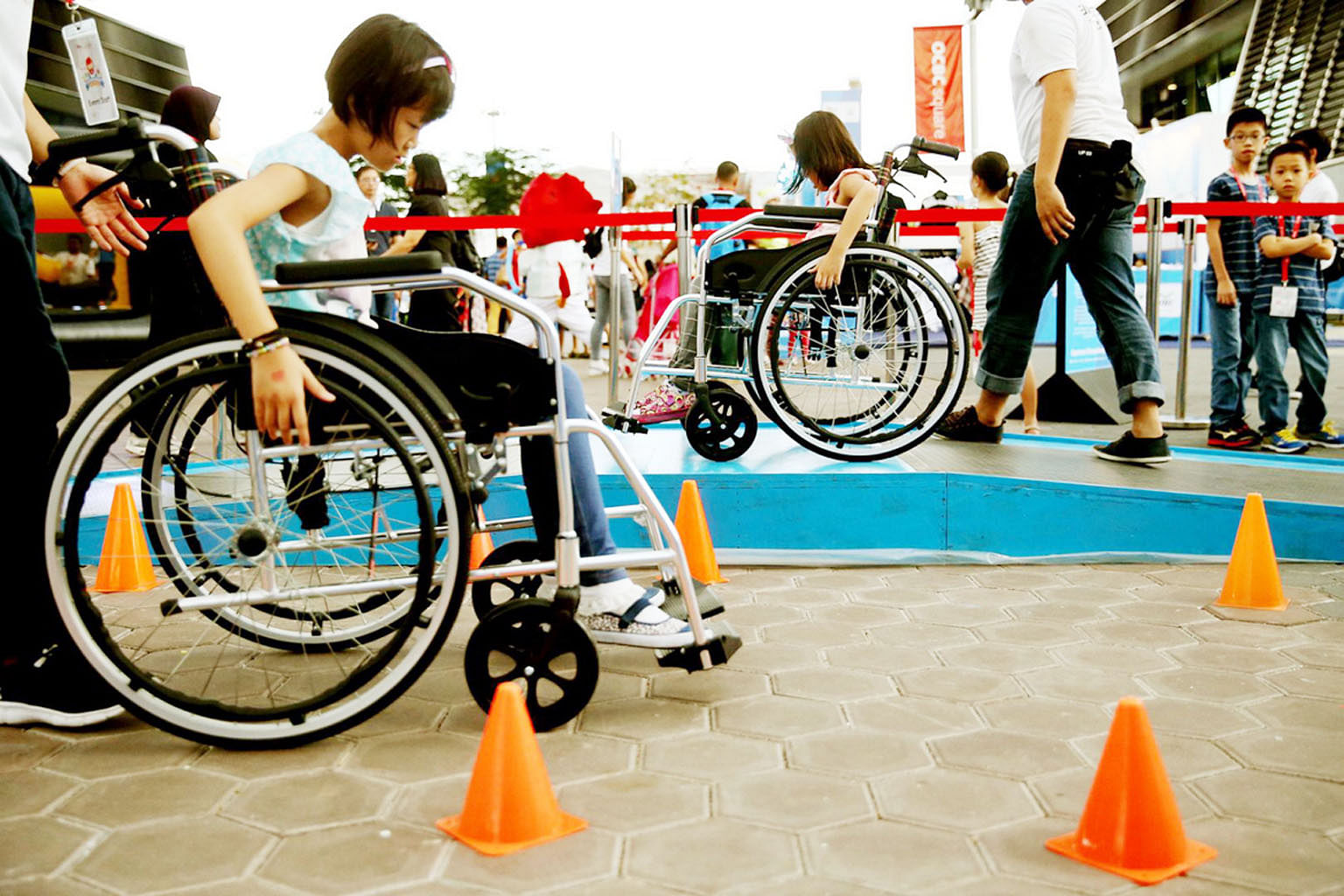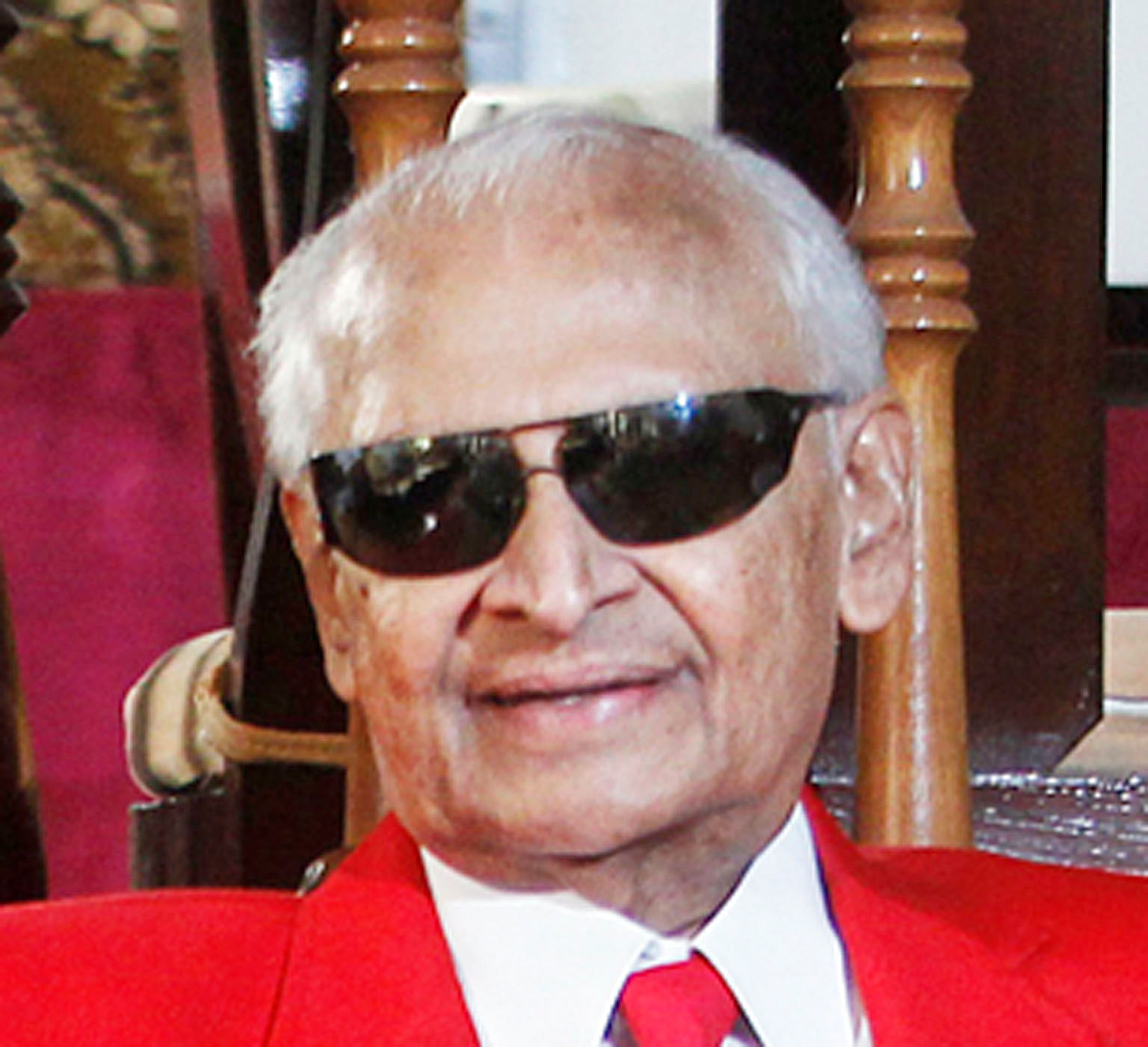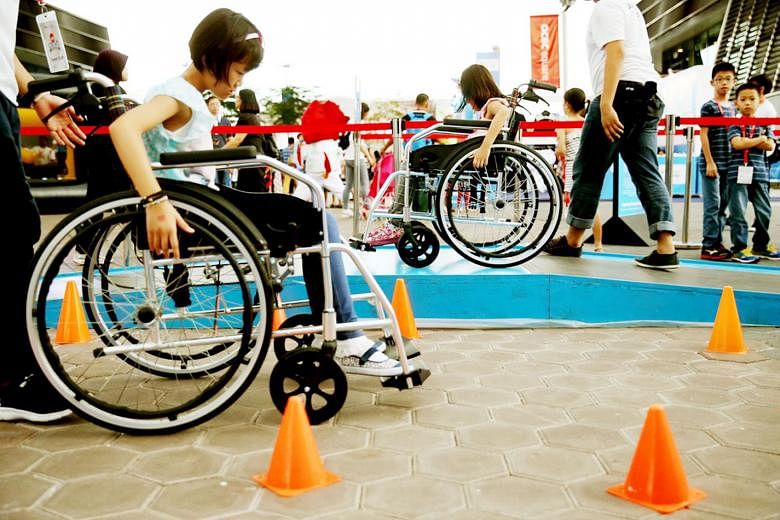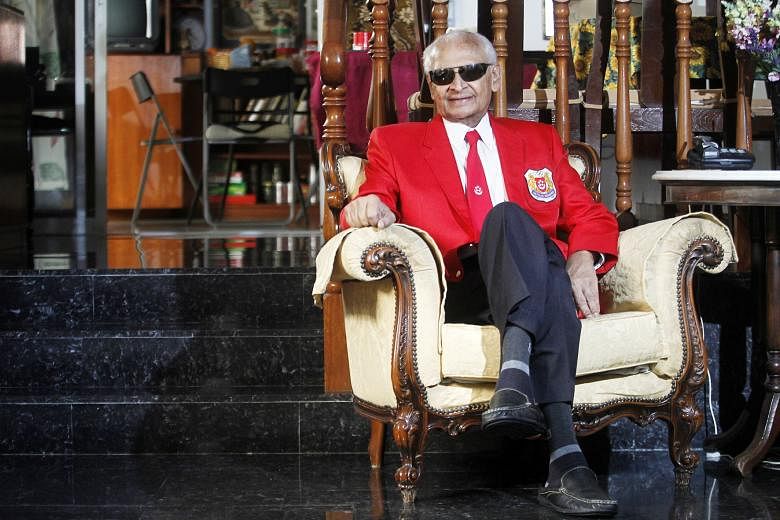Tomorrow is the International Day of Persons with Disabilities, and marks the 25th anniversary of its proclamation by the United Nations General Assembly in 1992.
It is an opportune moment to reflect on what policies for people with disabilities in Singapore have achieved and identify possible future directions.
The beginnings of inclusion for people with disabilities in Singapore can be traced to 1981, which the UN declared as the International Year of Disabled Persons.
Leaders of the disability movement from around the world, frustrated at the lack of their representation in organisations that provided services for them, met in Singapore and started the Disabled Peoples' International (DPI).
Not many people know this, but a Singaporean became the founding chairman of DPI, a fact we can take great pride in. The late Mr Ron Chandran-Dudley, who lost his sight at age 17, provided leadership for the early growth of DPI, which remains the only cross-disability international organisation advocating the full participation of disabled people in society. It has local chapters in over 130 countries and has a special consultative status at the United Nations.
In Singapore, Disabled Peoples' Association was set up in 1986 as DPI's local chapter.
From the beginning, DPI has espoused a "social model of disability" that focuses on eliminating barriers to full participation in society. This social model forms the basis of disability legislation and covenants, such as the Americans with Disability Act, the UK Equality Act, and the UN Convention of Rights of Persons with Disabilities.
The 1980s saw an increase in advocacy in Singapore. This led to the formation of the Advisory Council for the Disabled in 1988, which made wide-ranging recommendations, including a building code which was legislated and passed in 1990, setting the foundations for a more barrier-free environment.
In his swearing-in speech in 2004, Prime Minister Lee Hsien Loong made a commitment towards building an inclusive society in Singapore and even made special mention of people with disabilities. A national road map - the Enabling Masterplan - was launched in 2007 as a realisation of this commitment.

The Enabling Masterplan took a comprehensive life-course approach and has resulted in services from early intervention to special education and employment.
Other key initiatives over the years have included SG Enable, tasked with focusing on the creation of employment opportunities and providing referrals to a range of schemes and services. The Enabling Village provides a model of an inclusive community space with an accessible gym and supermarket, and restaurants that hire people with disabilities. A nascent but vibrant arts and disability scene has been established through the efforts of the National Arts Council, the Singapore International Foundation and British Council (Singapore).
Looking ahead, there is more to be done, in particular in getting meaningful participation by disabled people in the planning of policies and services. The disability community should mobilise themselves to deliberate on policy issues frequently instead of waiting for the Government to convene a planning exercise every five years.
The Institute of Policy Studies is piloting a Disability Network to support the efforts of disability organisations to provide input from the ground for policymakers.
More knowledge about the needs of people with disabilities in Singapore is certainly required. And it starts with being able to provide basic and accurate figures on how many people are affected by disabilities, for which there are none. One reason has been the reliance on the enumeration of disability service users, which is unreliable. However, we can look forward to the next census in 2020, which will capture data about disability in the population to aid policy planning.

The lack of a uniform definition of "disability" in Singapore also complicates matters. The Enabling Masterplan defines disabled people as those "whose prospects of securing, retaining places and advancing in education and training institutions, employment and recreation as equal members of the community are substantially reduced as a result of physical, sensory, intellectual and developmental impairments".
However, in terms of implementing disability policies, Singapore takes a pragmatic approach, where each policy is geared towards those who require assistance. The upcoming census exercise provides an opportunity for Singapore to come up with a clearer definition of what it means to be disabled.
It is important to take to heart "Nothing About Us, Without Us", a guiding principle of the disability community for their inclusion in decisions that affect them. Perhaps the next chairman of the Enabling Masterplan can be a person with a disability or be elected by the community.
Beyond basic information, we need interdisciplinary research that takes into account the perspectives of disabled people as full and deserving members of society. It is timely for our local universities to start disability studies programmes, which are becoming more popular in universities across the United States and Britain. Besides informing policies, they can also serve as an avenue to educate the next generation in diversity and inclusion.
Finally, having made great strides in the provision of basic services, we should strive towards true community and cultural inclusion, where disabled people not only access, but also contribute to the cultural life of Singapore. An inclusive society of the future must not just be one that is multi-cultural and multiracial, but also multi-abled.
- Zhuang Kuansong is pursuing a PhD in Disability Studies at the University of Illinois at Chicago, focusing on issues of inclusion in Singapore. Justin Lee is a research fellow at the Institute of Policy Studies, National University of Singapore. He studies issues related to vulnerable and disadvantaged groups in Singapore, including people with disabilities.


